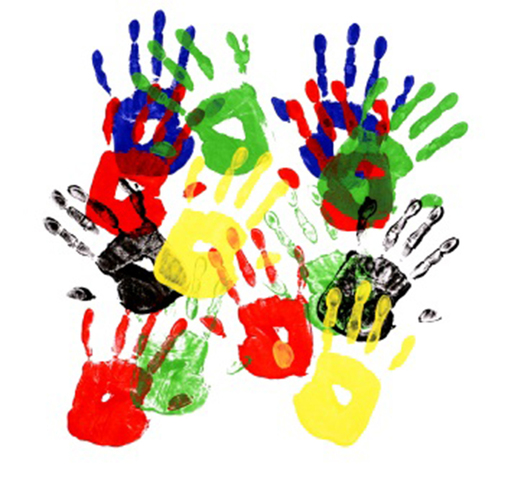By: Prof. Walid Phares

Prof. Walid Phares
“ In multi-ethnic societies, there are no ethnic majorities and minorities.” This was a concept I have discussed in my second book in Arabic, published in Beirut back in 1980.[1] This concept at that time was debated among Lebanese intellectuals and politicians. Both, Christian and Muslim politicians engaged in long exchanges assert the fact that they represented majorities, in a way that would have allowed them to obtain additional political privileges or rights. Under the Cold War era, ethnic equations were not very welcomed neither in the academic world nor in the leadership circles. Although multi-ethic and multi-religious, Lebanon was viewed by the political establishment as a unitary republic which can only have a majority and a minority. Therefore, and without a mechanism of decentralization, Federation or simply pluralism, that establishment was vying over who really represents the “majority” of all Lebanese, and who reduced to a “minority.” The debate was then about numbers, census, demographic changes, communities who have allegedly increased in numbers because of poverty versus communities who have decreased in numbers because of emigration. But that was a false problem.
In my first book, published in 1979, titled “Pluralism in Lebanon,” [2] I have argued that the Lebanese society was not unitarian nor unitary and therefore should not be governed by a centralizing power. In a first section, I have demonstrated the evolution of two ethno-religious communities, both “Lebanese” with different cultures, and visions of History. The formation of Greater Lebanon in 1920 created a clearly bi-National, bi-ethnic society, similar in many ways to Belgium, Canada, Cyprus and Sudan. Unfortunately, the Lebanese legislators of the 1930s and 1940s, although indicating that Lebanon has multiple “communities,” chose the unitarian form of Government to manage the national destiny of Lebanon. On the one hand they thought satisfying the various religious communities by establishing a sectarian ratio of participation in power, but on the other hand did not recognize the existence of a multi-ethnic society per say. That mistake was one among others that set the country on fire since 1975.
Since the early eighties, some intellectuals in Lebanon advanced the idea of multiculturalism and federation, as a way to solve the internal problem of the country. In my various articles in books, I defended the idea that if recognized as multi-ethnic, Lebanon won’t have to deal with the stress of who is a majority and or a minority, and therefore would avoid the destructive crisis. If the Christians were a majority in the 1940s, this should not undermine the Muslims right to be part of Government, and Lebanon should not become a Christian country as long as it is a multiethnic state. And if Muslims made demographic advances in the 1980s, this also should not shift Lebanon from a pluralist condition to a unitary Arab Muslim country. No matter who enjoys the greatest numbers, the fact that the country is based on multiplicity of communities makes the concept of simple majority irrelevant.
Neither maronites, nor Shiites can claim being a total majority in Lebanon, nor can sunni, druze or melkite claim similar realities. No community alone can form a majority, for all groups are minorities, if taken alone. Take for instance Canada. Although the English speaking people are superior in numbers , and the French speaking population is inferior in numbers nationwide, the first group cannot use the mere fact of their numbers to impose a specific identity in Quebec. There are two ( main ) cultural groups in Canada, irrespective of numbers . In Belgium, the same concept is prevalent. Same goes for Switzerland: The German speaking people cannot claim the whole of Switzerland for themselves and their identity, because of sheer numbers. In Cyprus , the greek numerical majority has clearly offered the Turks the position of Vice President, even though the Turkish speaking community does not exceed 20% of the population.
In other words, if a country wants itself to be multi-ethnic and remain as such, it cannot allow one ethnic community to claim all powers and impose its own vision of culture and society, just by claiming that it holds a democratic simple majority. For in multiethnic society, there are no simple ethnic majorities. Majorities are developed inside those communities, while a federal arrangement organizes the coexistence between the ethnic communities.
Back to Lebanon. This small country was formed as a modern state in 1920. As long as its main components are attached to the international borders of “Historic” Lebanon, no community can claim a majority even though it may have the largest numbers of adherents. On socio-economic levels the majority is national, whoever obtains a simple majority wins. On the ethnic and cultural levels, each community has its own outlook and identity to preserve. Such a reality cannot be preserved except through a historic agreement among the Lebanese communities themselves. For as long as Multiculturalism is Lebanon’s identity, no segment of this society can impose its will on the others because of its size. It is a qualitative difference that unite the Lebanese Quantitative claims will only divide them, and dismantle Lebanon.
- “Al-Fikr al-Lubani wa Utruhat al-Taareeb”. The Lebanese Thought and the Thesis of Arabization.” Darel Sharq. Beirut.1980
- “Al-Taadudiya Fi Luban” Pluralism in Lebanon. Kasleek University. Lebanon.1979
* Dr Walid Phares is a professor of Middle East Studies and Ethnic Conflict at Florida Atlantic University. He is the author of several books and academic articles on Lebanon, the Middle East and Mediterranean Societies. Phares has testified to the US Senate and conducted Congressional briefings on Ethnic and religious minorities around the world. Frequently interviewed by national and international media on ongoing crisis, Phares lectures on this topic and international academic audiences. Professor Phares is native of Lebanon.




